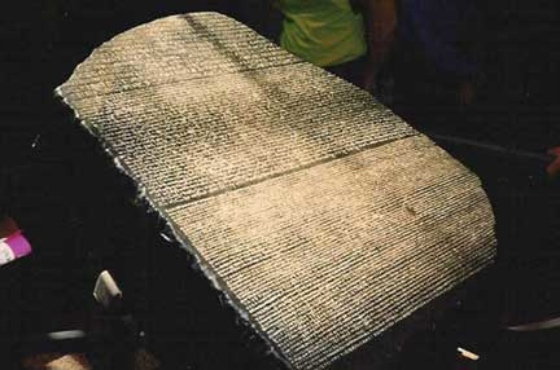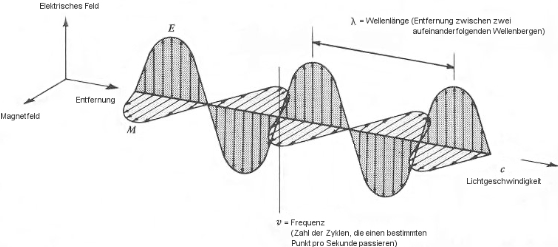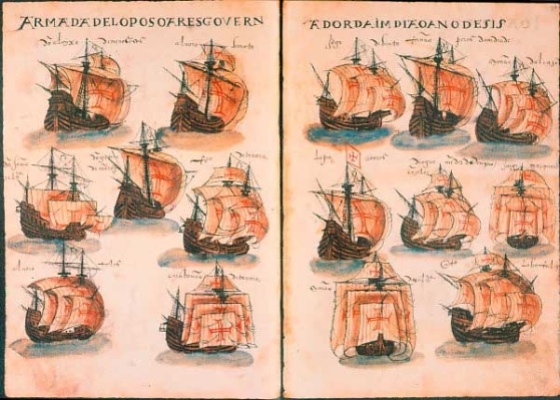 |
|
StefanL, 12.05.11, 09:18
For the questions and answers of this installment the staff of tinytalk plc. has recruited outside help. You will get to know these helpers over the course of this episode.

We now need to draw your attention to the fact that we can of course not aspire to know or check all of the McLuhanistic bullshit that has been published on the web in both of the common senses of the expression, much less the nonsense that has been applied to paper by means of dust, color, lasers or rotating drums.

1st of all, we need to substantiate a bit more what we said last time a medium was, in our set of environmental conditions, intentions and purposes and blah blah blah, that is. Let us take a quick look at wikipedia:
en:
In communications, media (singular medium) are the storage and transmission channels or tools used to store and deliver information or data. It is often referred to as synonymous with mass media or news media, but may refer to a single medium used to communicate any data for any purpose.
de:
Zwei Verwendungen des Begriffs sind unterscheidbar:
- Medium als stofflicher Vermittler: Ein Medium ist zunächst ein zwischen individuellen Körpern befindlicher raumerfüllender Stoff mit bestimmten Eigenschaften. Meist ist ein solcher Stoff ein chemischer Stoff. Das Medium eines Schwimmbeckens ist beispielsweise Wasser, jenes einer Sauna Luft oder Dampf. Weil Stoffe Impuls und Energie übertragen, können sie auch Information übermitteln. Die Übertragung von Schall benötigt z. B. einen vermittelnden Stoff wie Luft.
- Medium als Übermittler von Informationen: Ausgehend von der stofflich vermittelten Informationsübertragung ergibt sich eine Verallgemeinerung, bei der die stoffliche Qualität eines Mediums in den Hintergrund tritt. Der Begriff Medium kann auch ein Kommunikationsmittel beliebiger Art zwischen Sender und Empfänger bedeuten. Verwandte Bedeutungen treten in der Philosophie und Soziologie auf. So werden auch Personen, die behaupten, mit geistigen Wesen kommunizieren zu können, als „Medium“ oder „medial“ bezeichnet. Heute werden alle technischen Massenkommunikationsmittel zwischen Menschen allgemein als „Medien“ bezeichnet, etwa der Rundfunk, die Printmedien, das Internet etc.
fr:
Le terme média désigne dans l'acception la plus courante tout moyen de diffusion,
- naturel (comme le langage, l'écriture, l'affiche)
- ou technique (comme la radio, la télévision, le cinéma , Internet)
permettant la transmission d'un message, la communication ou l'échange d'informations.
We could now diagnose how stupid frenchies are (l'écriture = média naturel) but will abstain from following that particular train of thought in favor of getting our idea of media half right. From the above definitions it becomes pretty clear that in our world "media" is used in 2 different ways. Scientifically, for the carrier "materiél" of messages/content/communication/whatever and journalistically, to signify the carriers inclusive the messages and more then all else for such that are meant to be received by many.
So, in English media are
- storage and transmission channels or tools ;
in French they are
- tout moyen de diffusion, naturel ou technique
and in German they are
- ein stofflicher Vermittler oder ein Übermittler von Informationen.
On can easily see that we have a set of clear and concise, internationally agreed definitions of what media are, scientifically.
L'Académie française, conscious of language as ever, informs us that modern usage of the term originated from US English: XX e siècle. Abréviation de l'anglais des États-Unis mass media, de même sens. Tout moyen de communication servant à transmettre et à diffuser des informations, des œuvres. La presse, la radiodiffusion et la télévision sont des médias.
English Wikipedia with reference to Briggs & Burke who in turn refer to the Oxford English dictionary tells us: The phrase "the media" began to be used in the 1920s, but referred to something that had its origins much further in the past.

In C.E. Shannons seminal 1948 paper A Mathematical Theory of Communication medium is a closer (or farther) classification of the middle part in a list of 5 abstracted parts of a communications system:
3. The channel is merely the medium used to transmit the signal from transmitter to receiver. It may be a pair of wires, a coaxial cable, a band of radio frequencies, a beam of light, etc.

Funnily enough, paper, clay and the ether are not in the list of Mr. Shannons examples of media. His essay though starts with a description of its motivation, which is the interest in a general theory of communication intensified by the recent development of various methods of modulation. Modulation in "Shannon" is not a part of the medium. Modulation and hence necessarily demodulation are handled by 2 & 4 of the list, called the transmitter and receiver. #1 by the way is an information source (human maybe) and
#5, the destination, is the person (or thing) for whom the message is intended.
source - transmitter - channel (medium) - receiver - destination
That a technically and mathematically interested person like our Mr. Shannon would abstract in such a way should not surprise, and be it only for the reason that IRL the modulator device is physically easily distinguishable from the medium substance. In our world of proactive agents and passive enduring then we would rather see modulation as a tool of the actor than perceive it as a potential or - once implemented - an attribute of the medium.
Excursion: Modulation in Comtemporary Theology
A certain french theologian, Mr. Pierre Babin, most probably only of interest for the more fanatic McLuhan explorers used the term "modulation" to create an oppositional theological pattern and make a distinction between "modulation" and "alphabet" churches. It is well known that Mr. Babin was influenced by Marshal McLuhans writing, collaborated with him in the 1970ies. The two of them held quotable conversations on church and faith and even produced correspondence. The way Mr. Babin uses the term modulation though, that has never become a very popular term outside music and is neither extremely scientific nor metaphorically convincing. Now that digital discrete encoding permeates vast territories of communication that oppositional usage has become even more obsolete. In our superficial knowledge of Prof. McLuhan's serious writing the term modulation seems to be rather minor importance.
Caveats
Keep in mind though that without modulation media are not that much of a communication, just stones or rags or - worse still- invisible, untouchable, unhearable tasteless and scentless beams. "Media Research" in the sense of what it signifies as a tag here and what it stands for in the non technical faculties would be quite without any point in regard to those wholly unmodulated media.

Keep in mind also that every medium allows for just certain modulations, prefering some over others, or as Prof. Douglas Brent of the University of Calgary's Department of Communication and Culture has formulated in his famed "Brent's Law" on the Effects of Media:
The true power of a new medium lies not in what it makes possible. It lies in what it makes easy.
That last quotation of course was pretty sloppy and double minded. From what we had noted before readers are pushed to think, that we meant to apply the quote to the fact that all “new” media (paper following vellum, "ether" following wire ...) make some modulations easier and others less so. Prof. Brents law of course applies to a medium, one step further in the process, thus medium inclusive the modulation process, in Shannon talk an arrangement or set composed of transmitter, channel and receiver or, as we could also say, modulator, medium and demodulator. And of course that constitutes what “medium” means in the context of the human sciences.

We can stop right here for the time being and still be confident that we have a preliminary productive notion of what media are and a definition of the term that is useful in our actual context:
Modulation - Medium - Demodulation, all condensed into MEDIUM
(inclusive the modulation structure)
This definition is linguistically satisfactory for it is still fits the between the (at least 2) participants of communication.
Be careful though, for modulation includes the process and its end. With print that could encompass the process of writing and/or the string of pictures, symbols and white space, with TV the chain of pixels or sequence of oscillations that have been intertwined into the "material between" by modulation.
|
|
 |
last updated: 28.06.25, 09:47
Youre not logged in ... Login
 ... antville home
Terms of Service
About us / Imprint
| Juli 2025 |
|---|
| So. | Mo. | Di. | Mi. | Do. | Fr. | Sa. |
|---|
| | 1 | 2 | 3 | 4 | 5 | | 6 | 7 | 8 | 9 | 10 | 11 | 12 | | 13 | 14 | 15 | 16 | 17 | 18 | 19 | | 20 | 21 | 22 | 23 | 24 | 25 | 26 | | 27 | 28 | 29 | 30 | 31 | | | | Juni | | |
    D'après ce que je vois
vous avez tout à fait raison, Mr. Tobi.
by MaryW (01.03.25, 08:34)
...
La crisi consiste appunto nel fatto che il vecchio muore e il nuovo non può nascere: in questo interregno si verificano i fenomeni morbosi piú....
by tobi (28.02.25, 16:22)
...
Haschimiten-Familie
Vater:Husain ibn 'AliEmir von Mekka von 1908 - 1916König des Hedschas von 1916 - 1924
Sohn Faisal:Verhandlungsführer der "Araber" in Paris König des Irak von 1921....
by StefanL (19.01.25, 06:26)
Ich habe eh
einen Esseh über den Kulturpessimismus, der ja grundlegend mehr reaktionär als konservativ ist, in Arbeit. Wird aber noch dauern.
by StefanL (10.01.25, 23:50)
Jaaa!
Ich geb ja gerne zu, dass der Neid aus mir spricht. ;-)
by StefanL (10.01.25, 23:46)
...
Aha soso ein Professor h.k. (honore kurza).
by tobi (10.01.25, 23:30)
I totally agree
mit der Meinung, dass das Hemisphärenmodell überholt ist.
Die mediale Lust am Untergang hat eine rational kalkulierendes Element auf der einen Seite und massenpsychologische Element, dass....
by StefanL (10.01.25, 20:15)
Woher kommt diese Lust am Untergang?
Friedrich Sieburg kommentierte »die Tendenz der Medien, unentwegt den Weltuntergang durch einen Atomkrieg vorauszusagen als weinerliche, kaum zu ertragende Geschwätzigkeit. Sie sei auch deswegen absurd,....
by tobi (10.01.25, 19:18)
Read the books,
watched the series for a while. Got distracted then. Did NOT buy the T-Shirt. Interesting problem. Thanks!
Slice, slice, very slice. Thank you for not killing....
by StefanL (06.01.25, 11:39)
...
Slice, slice, very nice.
by tobi (05.01.25, 23:31)
...
😻
by tobi (18.12.24, 12:27)
We could just barely
keep the censor's office and the press team of the president-elect from intervention but here are our apologies and our thanks for these valuable hints....
by MaryW (17.12.24, 23:37)
...
The (correct) first name of Mr. Zelenskyj is the Ukrainian Володи́мир, not (of all things) the Russian Влади́мир 😿
Second name is Oleksandrovych.
Ложка дьогтю у бочці....
by tobi (16.12.24, 19:15)
Du hast recht,
Universal-Genies brauchen wir echt keine mehr. Ich wollte eh nur sagen:
Things are going to slide, slide in all directions.
Won't be nothing, won't be nothing you....
by MaryW (31.10.24, 23:13)
...
Hm. Ich glaub, da gibt es schon noch einige Kandidat*innen. Mir fällt spontan Lisz Hirn ein. Ich fürchte nur, die schaffen es nicht mehr, so....
by tobi (03.10.24, 19:21)
Das sind
wirklich die allerletzten, diese Streberschweine. Aber sonst auch.
by StefanL (18.09.24, 08:42)
Es gibt sogar
Verbrecher, die das ganze WE zusätzlich durcharbeiten, um Pegelkarten zu bauen. Das sind dann die allerletzten.
by gHack (17.09.24, 18:56)
Geändert
Inzwischen hat Herr Fidler den Fehler erkannt und korrigiert sowie sich inzwischen bei den LeserInnen entschuldigt.
Nur damit das nicht untergeht. Wir haben hier in der....
by StefanL (21.02.22, 09:17)
There has been evidence
that the important and successful ideas in MSFT - like licensing the Unix source code in the 70ies and learning from it and licensing QDOS....
by StefanL (02.01.22, 11:18)
Now
I think I maybe know what you meant. It is the present we know best and the future we invent. And history is mostly used....
by StefanL (02.01.22, 09:51)
???
Hey, it's just a phrase wishing to convey that you're always smarter after the event than before it.
by StefanL (28.12.21, 07:35)
Addendum
Oracle is now mentioned in the English Wikipedia article on teletext and even has its own article here. Electra has one too.
by MaryW (22.12.21, 07:11)
We have grossly erred
At least in point 5. We thought, people would have come to the conclusion that permanently listening to directive voices as an adult is so....
by MaryW (21.12.21, 07:42)
Did not want to spell the names out
Ingrid Thurnher should have been easy, as she is pictured in the article. Harald F. is an insider joke, the only media journalist in Austria,....
by StefanL (19.12.21, 08:45)
...
with four letters it becomes easier though i am not sure with hafi… anyhoo, inms guessing acronyms or whatever this is.
*it’s not my steckenpferd
by tobi (24.11.21, 20:49)
  |











